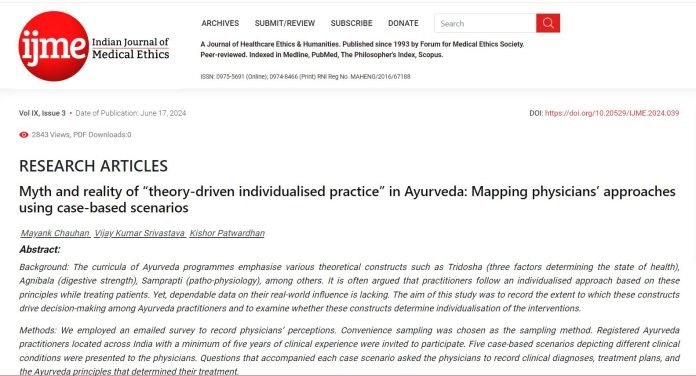Myth and reality of “theory-driven individualised practice” in Ayurveda: Mapping physicians’ approaches using case-based scenarios
Background: The curricula of Ayurveda programmes emphasise various theoretical constructs such as Tridosha (three factors determining the state of health), Agnibala (digestive strength), Samprapti (patho-physiology), among others. It is often argued that practitioners follow an individualised approach based on these principles while treating patients. Yet, dependable data on their real-world influence is lacking. The aim of this study was to record the extent to which these constructs drive decision-making among Ayurveda practitioners and to examine whether these constructs determine individualisation of the interventions.
Methods: We employed an emailed survey to record physicians’ perceptions. Convenience sampling was chosen as the sampling method. Registered Ayurveda practitioners located across India with a minimum of five years of clinical experience were invited to participate. Five case-based scenarios depicting different clinical conditions were presented to the physicians. Questions that accompanied each case scenario asked the physicians to record clinical diagnoses, treatment plans, and the Ayurveda principles that determined their treatment.
Results: A total of 141 physicians responded, from whom we received 152 responses as seven physicians responded to more than one scenario. The results suggest a significant lack of consensus among physicians regarding clinical diagnoses, interventions, and their understanding of pathophysiology in the given clinical scenarios. Many conflicting opinions were also noted.
Conclusion: Theoretical constructs do not appear to determine either prescriptions or individualisation uniformly. Two ethical questions arise: “Is this situation due to an inherently weak theoretical framework of Ayurveda?” and “How can one justify spending hundreds of hours teaching these theories?”
The full paper can be accessed at:





